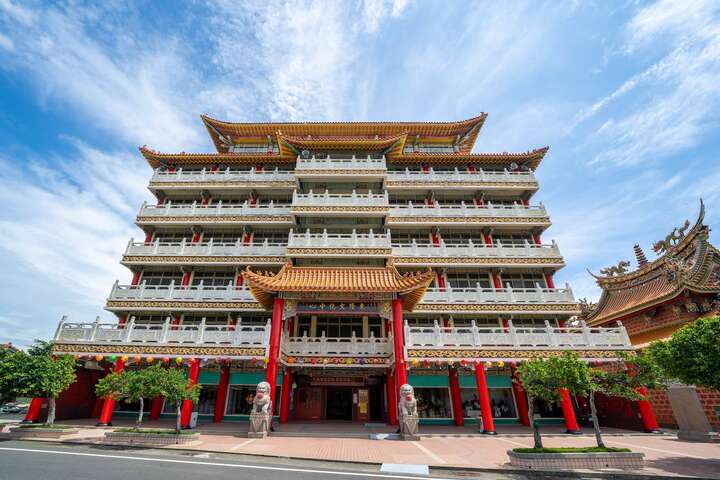Donglong Temple Wangye Belief Cultural Museum Introduction
Donglong Cultural Center, with its rich collection of folk cultural artifacts, features the Donglong Palace Wangye Belief Museum, covering over 200 square meters. The architecture is a blend of palace and traditional Minnan styles. Located on the third floor, the museum's main feature is the exhibition of the origins of Wangye belief and the early rural temple fairs that welcomed deities. It houses a vast collection of documents related to early Wangye belief and invites sculptors to carve out dozens of traditional阵头 (zhàntiáo) styles, such as Song Jiang formation, centipede formation with 36 sections, divine palanquins, horse reporters, and wooden plaques, using camphor wood. Each figure is exquisitely carved with vivid expressions, allowing visitors to experience the lively performances of various folk阵头 while gaining in-depth knowledge of the rituals for inviting and sending off deities, as well as other folk arts through static exhibits. The Water Margin Heroes Hall is another highlight of the Donglong Palace Wangye Belief Museum, showcasing ceramic figurines of the 108 heroes from "Water Margin." Originally, there was no connection between Liangshan and Wangye belief; however, due to the fondness of the temple's management, these figures were collected. Notably, renowned artists from the Shiwan Ceramic Factory in Guangdong were commissioned to create these lifelike figurines over three years. Each sculpture is intricately crafted, fully displaying the strong yet benevolent character of these heroes, making it a rare folk art collection in Taiwan. The Ritual and Customs Museum, located on the east side of the fourth floor, is an extension of the Wangye belief museum, primarily exhibiting folk ritual artifacts such as gold and silver paper offerings, ceremonial implements, and birthday celebration arrangements. Detailed explanations and descriptions of each item are provided, serving as a thematic museum for the research and preservation of folk customs.







































